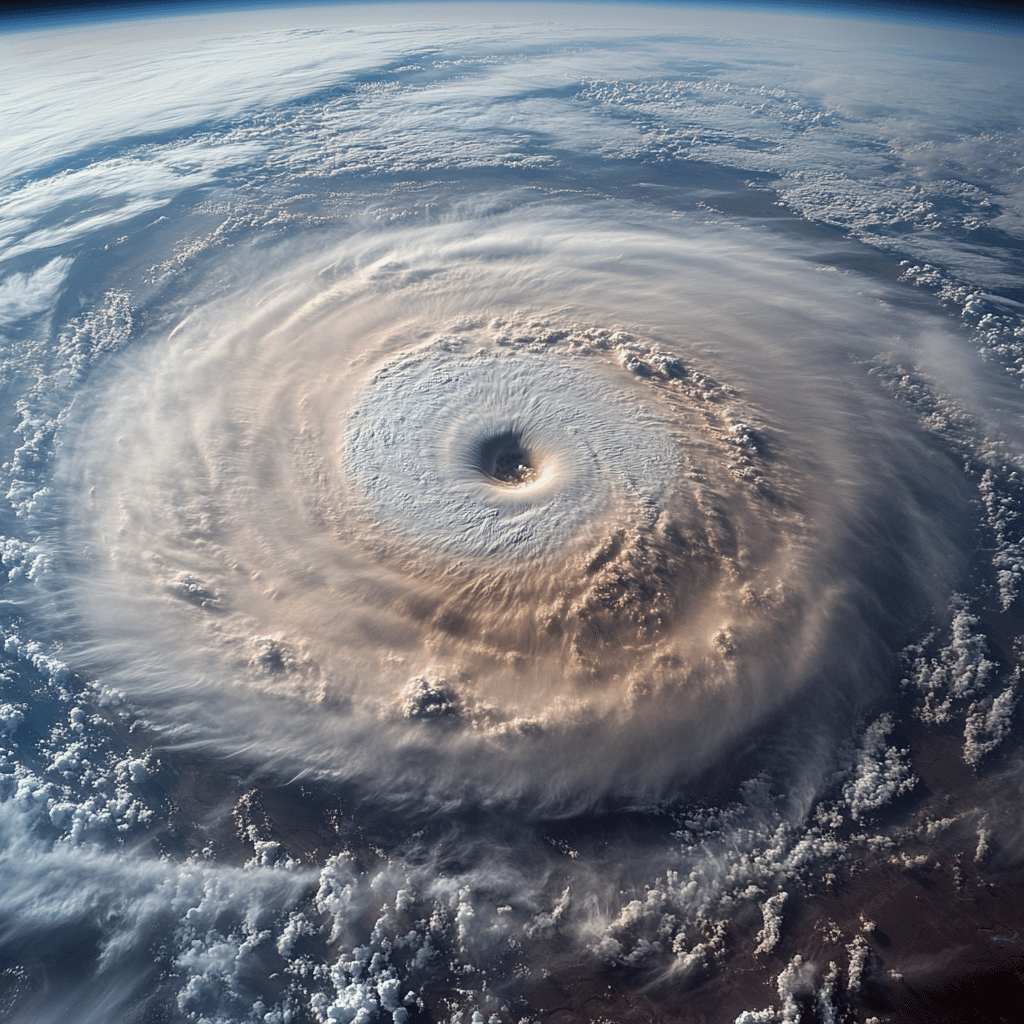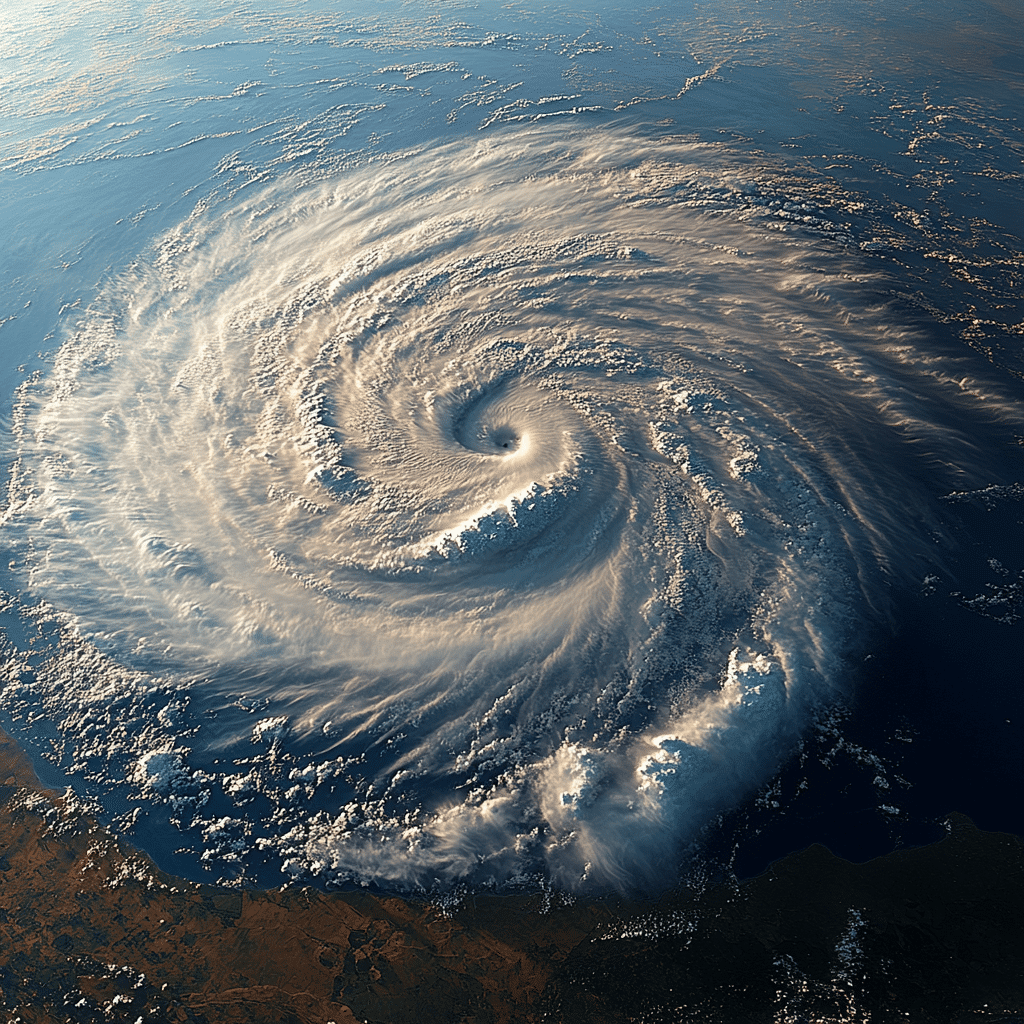As 2024 unfolds, meteorologists are eyeing a new hurricane forming in the Atlantic Ocean—Potential Tropical Cyclone Helene. Originating from a swirling cauldron of warm ocean waters, Helene is becoming the talk of the town due to its potential for catastrophic destruction. From eerie storm chasers to those stocking up on batteries and bottled water, it’s a captivating yet harrowing time. Let’s dive into what we can expect from Helene and how communities are preparing for the possible impacts.
1. The Formation of Potential Tropical Cyclone Helene
With weather patterns doing an unsettling tango in 2024, scientists highlight several elements fueling the storm. Climate change is not just a buzzword; it’s a potent force that shapes storm activity. Helene is spinning in waters over 80°F, bolstered by favorable trade winds. Satellite imagery and ocean buoys are at the front lines, allowing meteorologists to monitor rapid changes in intensity.
Key Meteorological Factors to Monitor
With these factors in play, one can’t help but feel the sense of anticipation mixed with dread. This isn’t just an ordinary storm; it’s a burgeoning force of nature that could potentially shift the tide of how we define storm seasons.

2. Expected Path and Potential Impact
As forecasters project Helene’s track, the possibility for historic destruction emerges. Areas set to feel the storm’s wrath include:
Real-World Examples of Past Destruction
The haunting memories of these past storms serve as a grim reminder that Helene’s emergence could plunge entire communities into turmoil.
3. Evacuation Protocols and Safety Precautions
In light of Helene’s impending arrival, local authorities are activating evacuation protocols. Think organized chaos, with communities bracing for impacts while ensuring safety.
Innovations in Emergency Preparedness
Engaging in collective preparedness isn’t just an option; it’s a necessity as communities gauge the uncertainty that looms.

4. The Role of Climate Change in Hurricane Intensity
Amid the looming threat of Helene, scientists grapple with the grim truth of climate change and its effect on hurricane ferocity. Rising sea temperatures and intensified weather patterns reality tell us storms like Helene could be the norm, not the anomaly.
Key Findings from Recent Studies
It’s not just about Helene; it’s about acknowledging societal shifts that require our vigilance and action.
Innovative Wrap-Up
As Potential Tropical Cyclone Helene bears down upon us, communities must draw from the wisdom of the past while bracing for the immediate future. Collaboration among scientists, emergency responders, and residents could very well mitigate potential destruction. The looming question persists: how prepared are we for a force of nature, a harbinger of change and challenge?
Let’s face it—Helene serves as a stark reminder of nature’s unyielding power. It’s a poignant test of our forecasting abilities and underscores the urgent need for authentic research into hurricane activity, particularly in the face of an inexorable climate evolution. As we move forward, the call for preparedness against the enveloping chaos becomes louder, urging a proactive rather than reactive stance against impending threat.
Stay informed, stay vigilant, and as you navigate through the potential storm of the year. After all, when it comes to surviving nature’s tempest, knowledge is power, and community is strength.
For more updates on storms and safety, consider keeping an eye on the latest resources such as Kari Lake Twitter and local news feeds. If you want a break from the tumultuous news cycle, consider unwinding at Resorts World New York City. Stay safe and stay edgy!
New Hurricane Forming: Trivia and Fascinating Facts
The Power of Nature
When a new hurricane is forming, it’s astounding to think how fast these storms can develop. In fact, hurricanes can escalate from tropical storms to devastating categories in less than 24 hours! For instance, just like the evolving scenarios in Fantasy Boys Ep 1 Eng Sub, nature has its own unpredictable storyline. You never know what twist a hurricane may bring. Interestingly, hurricanes are given names based on an alternating male-female pattern, primarily to keep track and communicate more effectively during storm season.
The Science Behind the Storms
Ever wondered what fuels these beastly weather patterns? Warm ocean waters and dense moist air are key ingredients for hurricane formation. It’s kinda like how a Zinger can elevate your mood with its spicy crunch; storms invigorate themselves with the warmth of water. The Atlantic hurricane season runs from June to November, so keep an eye out! Similar to setting up a personal health system with Sentara my Chart, meteorologists use sophisticated data to keep us informed. The importance of timely updates cannot be emphasized too much, especially for communities bracing for impact.
The Human Element
Hurricanes don’t just impact geography; they affect lives too. Just think about the dramatic moments captured in the news when everyone rallies together during crises. Like today’s fierce conversations about “Julia Roberts’ daughter,” awareness about human resilience shines through in disaster contexts. The aftermath often reveals how communities band together to help each other thrive post-storm. So, as we monitor the new hurricane forming, remember that it’s not just about weather; it’s about people coming together. With each storm, life lessons arise that echo the sentiment of Let That sink in.
As preparations are ramped up, don’t forget the crucial role of local businesses, like Steamworks chicago, supporting local initiatives during the storm. They truly illustrate how every sector can rally together during challenging times. Whether preparing food supplies or shelter, these contributions add a layer of hope amidst the looming storm. With a new hurricane forming, it’s essential to stay informed and united, ready for whatever weather comes next.



























